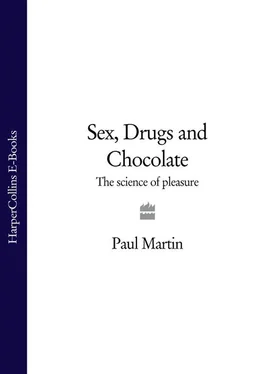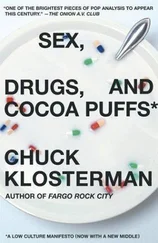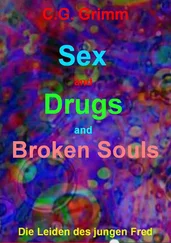All this bawdy revelry upset the Church, which tried hard to have The Society in Soho-Square shut down. In 1770 the bishop of London begged the king to ban a huge masked ball that Cornelys was arranging, but his pleas fell on deaf ears. Salt was later rubbed in the ecclesiastical wound when it transpired that the guests included the bishop’s own wife and the wives of three other senior clerics. Religious and secular attempts to constrain pleasure-seeking is an eternal theme that we shall return to later.
Teresa Cornelys’s genius at creating pleasure for others was a natural reflection of her background. She came originally from Venice, a city where the pursuit of pleasure had become an art form. She travelled to London with her child, whose father was none other than Giacomo Casanova. Teresa Cornelys was born close to Casanova’s family home in Venice and they met in their teens. Their mutual love of pleasure made them kindred spirits.
Casanova managed to pack more sensual experience into his life than most of us could dream of. Born in 1725, he died seventy-three years later, having variously been a novelist, poet, gambler, soldier, musician, spy, adventurer, free-thinker and prolific lover. He travelled widely, forged relationships with many famous people and enjoyed everything that life had to offer. When Casanova came to write his memoirs, shortly before his death, he looked back with evident enjoyment. ‘What pleasure’, he wrote, ‘in remembering one’s pleasures!’ He felt little regret at how he had chosen to live his life:
Cultivating the pleasures of the senses was my principal concern throughout my life; none, indeed, was ever more important to me. Feeling as though I was born for the fair sex, I have always loved it and let it love me as much as I could. I have also passionately loved good food and all things made to arouse curiosity.… As a great libertine, a bold talker, a man who thought only of pleasure in life, I could not find myself guilty of anything.
Back in Georgian England, the pleasure-seekers were receiving heavyweight support from a number of prominent thinkers. Foremost among these was the philosopher Jeremy Bentham. Like Aristippus before him, Bentham regarded pleasure as the ultimate aim in life. He famously argued that behaviour, morals and laws should be judged according to how much they fostered ‘the greatest happiness of the greatest number’. As far as Bentham and like-minded Utilitarians were concerned, humans were intended by nature to seek pleasure and avoid pain. In 1785 he wrote an essay entitled ‘Paederasty’, in which he argued that society’s disapproval of anal sex stemmed from an irrational antipathy towards pleasure, especially sexual pleasure. Bentham even tried to devise an objective method for calculating exactly how much ‘felicity’ any particular action would unleash, but this proved too difficult. Indeed, it remains the case to this very day that no one is entirely sure how best to quantify happiness or pleasure.
Strong echoes of Bentham’s philosophy are evident in current thinking that national governments should pursue policies and enact laws that are specifically intended to maximise national happiness, in contrast with their conventional preoccupation with maximising national wealth. However, it is often unclear what the proponents of such policies really mean by ‘happiness’, which they sometimes seem to equate with pleasure, or just feeling good. As we shall see later, pleasure and happiness are two quite different entities.
What does hedonism look like in the early twenty-first century? Much the same as in Georgian London or imperial Rome, it would appear. A far wider variety of mind-altering drugs is now available, but the familiar mainstays of sex, alcohol, food and gambling remain as popular as ever. In the UK, for example, the average household devotes about 4 per cent of its total expenditure to those two ancient and deeply entrenched drugs, alcohol and tobacco. Psychological research and social surveys consistently find that people around the world continue to derive most of their pleasure from having sex, eating, drinking, relaxing and socialising with family and friends. In private, many of them also seek chemical pleasure from illicit drugs, which is why drug trafficking is estimated to account for around 8 per cent of all international trade. But enough of the social history: it is time now for a little science.
TWO What Is Pleasure For?
Pleasure is the only thing worth having a theory about.
OSCAR WILDE,
The Picture of Dorian Gray (1891)
What is pleasure for? That is the sort of question biologists ask. What they mean is: how did this feature of our biological makeup help our ancestors to survive and reproduce, and therefore to become our ancestors? To put it another way, why did evolution equip us and other animals with the capacity and appetite to experience pleasure in so many varied and delightful ways, including perhaps some that are still undiscovered?
The simplest answer is that pleasure and its dark counterpart, pain, are there to encourage us to do the right things. Pleasure entices us to behave in ways that are likely to be biologically beneficial, while pain discourages us from doing ourselves harm. The ever-shifting balance between pleasure and pain is, to quote the philosopher David Hume, ‘the chief spring or actuating principle of the human mind’.
The idea that pleasure and pain direct our behaviour has been circulating in various guises for thousands of years, dating back at least as far as Epicurus and like-minded philosophers of ancient Greece. Psychology, as it came to be known, built upon this simple concept in the nineteenth century. In 1880, for example, Herbert Spencer advanced a specific psychological theory that all human behaviour is underpinned by the twin motivating forces of pleasure and pain. 1
Sigmund Freud pursued the theme with his psychoanalytic Pleasure Principle. In his characteristically doubt-free style, Freud asserted that he had no hesitation in assuming that all mental activity was ‘automatically regulated’ by the Pleasure Principle – by which he meant that all mental activity was directed towards the production of pleasure or the avoidance of displeasure. Freud decided that pleasure and displeasure were reflections of a mental phenomenon that he called ‘unbound excitation’; pleasure supposedly acted to reduce this excitation, while displeasure did the reverse. In another of his works, an even less hesitant Freud proclaimed that ‘It is simply the programme of the pleasure principle that determines the purpose of life.’
What has science, as distinct from Freudian conjecture, revealed about pleasure? One basic conclusion is that the behaviour of humans and other animals is self-evidently motivated by stimuli that are associated with pleasure. Pleasurable rewards (or ‘reinforcers’) tend to increase the frequency of the behaviour that produced them, whereas unpleasant stimuli do the reverse. The long-suffering experimental pigeon will peck energetically at a button if its efforts are rewarded with food, but it will rapidly stop pecking and avoid the button if instead it receives a mild electric shock.
A second basic conclusion is that the sorts of activities we find pleasurable could mostly be viewed as biologically beneficial, in the sense that they would generally have helped our ancestors to survive and reproduce in their natural environment. As we saw earlier, people consistently report that socialising, having sex and eating are their main sources of pleasure. These activities are also biologically beneficial, in the right circumstances. Even the simplest pleasures of life, like warming yourself in front of a fire or tending a garden, make good biological sense if you imagine yourself as one of your hunter – gatherer ancestors.
Читать дальше












